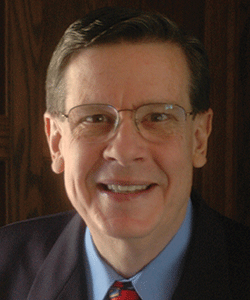Ed Diener
 University of Illinois at Urbana Champaign
University of Illinois at Urbana Champaign
William James Fellow Award
Nicknamed “Dr. Happiness,” Ed Diener is one of the leading pioneers in scientific research on happiness. He developed the Satisfaction with Life Scale and many other research protocols currently used by psychologists; he is chiefly responsible for coining and conceptualizing the term “Subjective Well-Being (SWB)” — how people experience the quality of their lives.
According to Diener’s research, there is a positive level of SWB throughout the world, with the possible exception of extremely poor countries. He’s found that even the majority of disadvantaged people, including those with disabilities, report higher-than-neutral levels of happiness. He hypothesizes that human beings possess a genetic basis for “positive affect” that we generally return to, even after horrible events.
One of Diener’s most noteworthy studies, conducted at the University of Illinois with Martin Seligman, found that students with the highest levels of happiness and fewest signs of depression had strong ties to friends and family and a commitment to spending time with them. In recent years, Diener’s research has compared happiness in different parts of the world. He has studied 160 nations of the world and discovered universal predictors of subjective well-being (such as meeting basic needs and having others one can count on), and also culture-specific predictors. In the last decade, Diener has advocated national accounts of subjective well-being, and this is becoming a reality in the United Kingdom and many other nations.
Diener has studied the effects that temperament and personality have on well-being, and is examining the effects of SWB on health and functioning. He’s also studied the links between personal income and happiness, and has found that once basic needs are met, additional income does little to raise one’s sense of life satisfaction. His empirical examination of happiness has contributed enormously to the understanding of human existence.





APS regularly opens certain online articles for discussion on our website. Effective February 2021, you must be a logged-in APS member to post comments. By posting a comment, you agree to our Community Guidelines and the display of your profile information, including your name and affiliation. Any opinions, findings, conclusions, or recommendations present in article comments are those of the writers and do not necessarily reflect the views of APS or the article’s author. For more information, please see our Community Guidelines.
Please login with your APS account to comment.